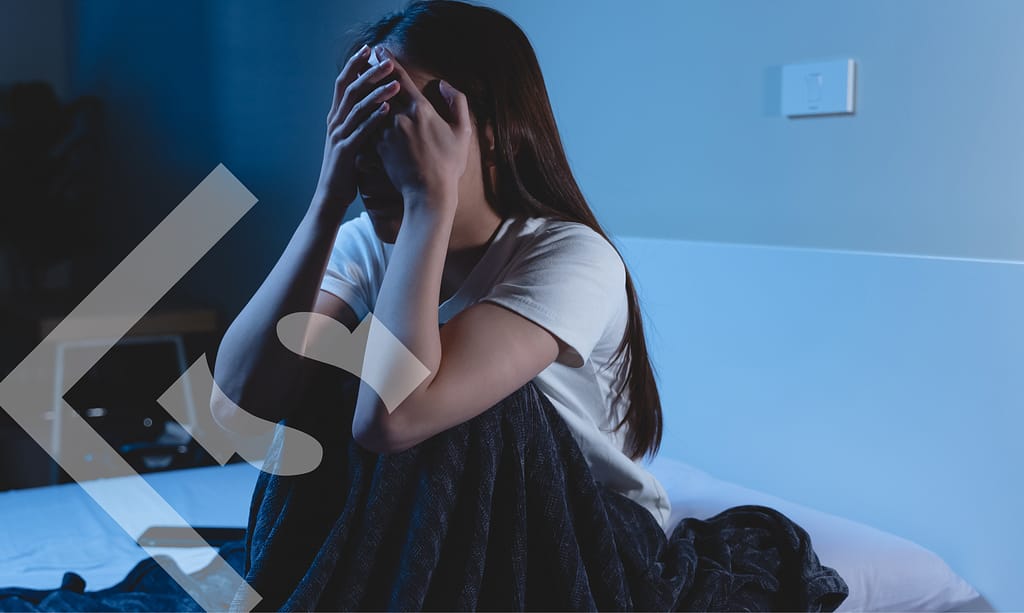The Silent Struggle: 5 Ways Sleep Apnea Fuels Depression

Exploring Sleep Quality and Mood
In today’s fast-paced world, sleep disorders and mental health conditions are on the rise. Consider this: According to the American Sleep Apnea Association, nearly 22 million Americans suffer from sleep apnea, a condition characterized by intermittent sleep and disruptive breathing patterns.
Interestingly, the American Psychiatric Association reports that approximately 1 in 6 people will experience depression during their lifetime. These statistics are alarming. And while at first glance sleep apnea and depression seem to belong to different realms of health, there is actually a deep-seated connection between the two.
Today, we’re going to unravel this relationship by shedding new light on the link between sleep quality and emotional well-being.
Understanding Sleep Apnea
So what exactly is sleep apnea? In layman’s terms, it’s a sleep disorder that causes your breathing to stop and start throughout the night. There are two primary types of sleep apnea: obstructive sleep apnea (OSA) and central sleep apnea. OSA, the more common form, occurs when the muscles in your throat relax and block your airways during sleep. On the flip side, central sleep apnea doesn’t involve a blockage at all. In this instance, your brain fails to properly signal the muscles that control your breathing.
Sleep apnea symptoms can vary, but the most common ones include loud snoring, gasping for air during sleep, dry mouth, morning headache, insomnia, and excessive daytime sleepiness.
Now here’s the crucial part: It’s incredibly important to diagnose and address this condition as early as possible. Left untreated, this condition may contribute to a host of serious health issues, such as heart disease, high blood pressure, and type 2 diabetes, not to mention the toll it takes on your mood and mental well-being.
5 Ways Sleep Apnea Fuels Depression
Understanding the link between sleep apnea and depression is crucial. Let’s delve into the 5 primary ways this condition can exacerbate depression:
1. Sleep Deprivation and Fragmented Sleep
This sleep disorder often leads to fragmented sleep and sleep deprivation, causing individuals to feel excessively tired and struggle with concentration during the day. Over time, these conditions may act as triggers for depressive symptoms, as lack of quality sleep disrupts the body’s natural rhythms and impacts overall mood regulation.
2. Oxygen Desaturation’s Impact on Brain Function
Sleep apnea episodes are characterized by periods of oxygen desaturation, or episodes of decreased blood oxygen levels. This can have profound effects on brain function and mood regulation, potentially leading to feelings of sadness, anxiety, and depression.
3. Stress, Anxiety, and Depressive Symptoms
The constant stress associated with managing this condition can exacerbate depressive symptoms. The expectation of poor-quality sleep, added to the daily fatigue and the struggle to maintain normal life routines, can generate a significant emotional burden.
4. Hormonal Changes and Emotional Well-Being
Sleep apnea may cause hormonal imbalances, particularly affecting hormones responsible for mood regulation, such as serotonin. As these hormonal changes can lead to mood swings and emotional instability, they might play a crucial role in the development of depressive symptoms in patients with this sleep disorder.
5. Social and Lifestyle Factors
This condition can also lead to social and lifestyle changes that indirectly contribute to depression. Reduced physical activity, strained relationships due to mood swings and exhaustion, decreased work performance, and inability to effectively perform daily activities can all cause feelings of isolation, frustration, and, ultimately, depression.
Sleep apnea and depression share a complex connection, highlighting the importance of addressing both conditions for optimal mental and physical health. Thankfully, effective strategies for managing these related conditions do exist.
Managing Depression and Sleep Apnea
When it comes to managing depression and sleep apnea, a multifaceted approach is the most beneficial. Lifestyle changes, such as maintaining a healthy weight, avoiding alcohol and tobacco, and implementing regular exercise, can significantly improve both conditions.
Positional therapy, which involves altering sleeping positions to facilitate better breathing, can be a viable option for people with mild to moderate sleep apnea. Oral appliances, such as mandibular advancement devices, are also beneficial in keeping the airway open during sleep and reducing apnea episodes.
For moderate to severe sleep apnea that isn’t manageable with oral appliances, continuous positive airway pressure (CPAP) therapy is often the most effective option. The CPAP machine provides a steady stream of pressurized air to keep the airway open during sleep, significantly reducing the episodes of sleep disorder.
In the most complex cases, surgical options are available. These interventions aim to remove or shrink tissues responsible for airway obstruction or to reposition the jaw to enlarge the airway.
However, regardless of the treatment type, working closely with your health care team is essential to determine the most suitable treatment plan based on your needs. Frequent follow-ups or adjustments might be necessary to ensure the optimal effect of the intervention.
Find support for your sleep apnea at Luminous Smiles.
At Luminous Smiles, Dr. Desai and our dedicated team understand the challenges of living with sleep apnea. We’re committed to helping you regain a good night’s sleep and a healthier, happier life by providing custom-made oral appliances designed to reduce your symptoms. However, it’s important to remember that a diagnosis from a medical doctor is necessary before beginning any treatment.
We are here to support you every step of the way, from diagnosis to treatment and beyond. Don’t let sleep apnea control your life any longer. Schedule an appointment with the best Newport Beach dentist today and take the first step toward better sleep and improved mental health.